
Royal Society of New South Wales Bicentennial Postgraduate Scholarships
The Royal Society of New South Wales has a long tradition of encouraging and supporting scientific research and leading intellectual life in the State. The Council of the Royal Society has established the Royal Society of New South Wales Scholarships in order to acknowledge outstanding achievements by young researchers.It is awarded for distinguished research in any area of the Social and Behavioural Sciences including Economics, Management, Psychology (with the exclusion of clinical psychology which is included in the RSNSW Walter Burfitt Award in Medical and Veterinary Sciences and Technologies) and related disciplines, conducted mainly in New South Wales. Recipients may be resident in Australia or elsewhere.
Royal Society of NSW Scholarship Winners 2024
Mr Muyang Li is a second-year PhD student at the University of Sydney and the Sydney AI Centre. He joined the PhD program following the completion of his BSc (Hons) with first-class honours at the same institution.
Muyang’s academic record is impressive. Only in his second year, he has thus far published 9 peer-reviewed articles in top conferences and journals of our area, with his papers being cited over 150 times in the past two years. His research excellence has been recognised by various entities, including the Google Award for best poster in AI/ML from the University of Sydney and Google, an outstanding reviewer award from ICLR 2024, and a finalist in the renowned Data Science PhD fellowship from Bloomberg.

Mr Joel Sved is a second-year PhD student in the School of Electrical and Computer Engineering at the University of Sydney, having previously completed a BE (Hons 1) in 2022, also at the University of Sydney. His PhD studies are in the field of photonics, with a thesis titled ‘On-chip Neural Networks based on Integrated Photonics’.
His scholarship has been awarded on the basis of his paper, J. Sved, S. Song, Y. Chen, L. Zhou, R. Minasian, and X. Yi, Machine Learning Assisted Two-Dimensional Beam-Steering for Integrated Optical Phased Arrays (Optics Communications, 540, 2023), which introduces the first machine learning-assisted method for achieving high-precision 2D beam-steering in optical phased arrays. This ground-breaking approach, designed to overcome fabrication imperfections, thermal crosstalk, and ambient temperature variations, was experimentally validated on a silicon-on-insulator (SOI) platform. The technique demonstrates significant potential for a wide range of applications, including LiDAR, imaging and sensing systems, free-space optical communications, as well as augmented and virtual reality technologies.

Ms Linqing Tian is a third-year PhD student in the School of Chemistry at UNSW Sydney, having previously completed a Master of Environmental Engineering in 2021 at Tsinghua University, and a Bachelor of Water Supply and Drainage Engineering at Zhengzhou University in 2018.
Leveraging her extensive expertise in polymer science and computational modelling alongside her innovative approach to nanomedicine, Linqing Tian developed a novel drug delivery system that enhances the delivery of therapeutic drugs without relying on organic solvents. This sustainable system, which uses sugars and amino acids, allows for the formation of nanomedicine in an aqueous environment. It streamlines the process by eliminating the need for multiple steps and enables precise control over nanoparticle size by adjusting the quantity of the added drug. Versatile and easy to adapt, this system is suitable for a wide range of therapeutic drugs.

Royal Society of NSW Scholarship Winners 2023
Ms Sasha Bailey is a second-year PhD and research assistant in the Matilda Centre for Research in Mental Health and Substance Use at the University of Sydney, having previously completed a BA in Philosophy and a Master Of Public Health, also at the University of Sydney. Since commencing her PhD in March 2022, she has received 19 awards/prizes and has published two journal articles as a first author with a further 12 first-author publications under review. In addition to her research program, Sasha holds a number of leadership and governance roles in the Matilda Centre and the wider LGBTQA+ community.
The focus of Sasha’s research is on improving the understanding and prevention of mental ill-health and substance use among gender and sexuality-diverse (LGBTQA+) young people in Australia and internationally. Using data from the Longitudinal Study of Australian Children, she has produced Australia’s first-ever population-level, nationally representative estimates of the number of LGBTQA+ young people affected by mental ill-health, substance use, victimisation, and discrimination, within Australia, identifying just how much an LGBTQA+ affirming school climate can protect and buffer against the mental ill-health effects of victimisation and discrimination. Her research is complemented by her active advocacy for improved LGBTQA+ public health action, with her nominators noting that she is called upon routinely by senior executives at the University to deliver speeches about LGBTQA+ visibility at the University.
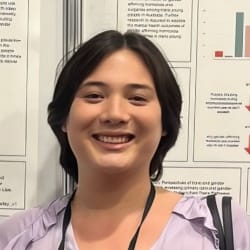
Mr Jayden McKinnon is a PhD student in the Molecular Horizons Research Institute and the School of Chemistry and Molecular Biosciences at the University of Wollongong following his BMedSc (Hons) degree studies at UoW. His PhD studies are in the field of mass spectroscopy imaging, the aim of which is the development of innovative methods for the detection of metabolites in tissues.
Now in his second year of his PhD, he has achieved a first-author paper in the journal, Analytical Methods. In addition, he has been recognised through two significant awards at the University of Wollongong Higher Degree Research Symposium – the Student Choice Award for Best Oral Presentation and the Best Oral Presentation Award. In addition to his research studies, Jayden has also taken on academic and scientific leadership positions, notably as the Vice President of the Medical and Health Sciences Association at the University of Wollongong from 2018-2020, and currently as a student representative on the board of the Australian and New Zealand Society for Mass Spectrometry.

Royal Society of NSW Scholarship Winners 2022
Miss Clara Liu Chung Ming is a PhD candidate in the School of Biomedical Engineering at the University of Technology Sydney under the supervision of Dr Carmine Gentile. Her research focusses on the bioengineering of advanced 3D in vitro models of the human heart pathophysiology, including “the-heart attack-in-a-Petri-dish” and heart failure using patient derived-stem cells. In particular, Clara has demonstrated that acetylcholine (a natural compound produced by our body) plays a protective role against myocardial infarction (heart attack) and drug-induced heart failure using her cells. Clara’s multidisciplinary project is carried in collaboration with the University of Sydney/Charles Perkins Centre/Sydney Heart Bank, Royal Prince Alfred Hospital and Baker Heart and Diabetes Institute/Monash University. Clara’s research has focussed also on the effects of Sars-CoV-2 on human heart pathophysiology, as well as the bioengineering of pre-eclampsia-induced heart failure using patient-derived stem cells. Her research has received several awards, including Australian Government Research Training Program Stipend (2021), FEIT HDR Women in Engineering and IT awards (2021), ASBTE Rapid Fire Presentation Award (2022) and NSW Education Waratah Scholarship (2022).
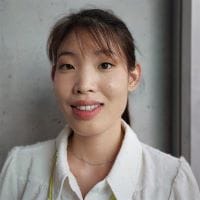
Mr Thomas Mesaglio, who is a PhD candidate in the School of Biological, Earth & Environmental Sciences at UNSW Sydney, works on quantifying our knowledge of Australian plant biodiversity, developing identification tools, survey and species description protocols and general data frameworks for improving this knowledge. Although much of his research focuses on analyses of ‘citizen science’ data, he has published scientific papers in disciplines including marine forensics, bushfire recovery and invertebrate ecology and taxonomy. As part of the Environment Recovery Project team, he received the Department of Industry, Science and Resources’ 2022 Eureka Prize for Innovation in Citizen Science. He has published two books: a guide to scientific etymology and a seashell field guide and is a curator and forum moderator on the citizen science platform iNaturalist, with 39,000 observations and 227,000 identifications made for other users.
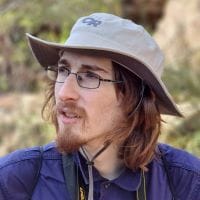
Ms Anyang Zhao, a PhD candidate in the John Curtin School of Medical Research at the Australian National University, is undertaking research focused on the clinically important foodborne pathogen called Listeria, which causes 20-30% of death in humans. She has identified that Listeria infection triggers inflammation and cell death, which are biological processes crucial for overcoming Listeria infection. Excessive inflammation caused by the immune system while fighting off Listeria infection can lead to sepsis and death. Anyang’s research aims to inhibit such excessive inflammation and could lead to the development of therapies against sepsis. During her first year of PhD study, Anyang published a preview article in Cell Host & Microbe (2022) as co-first author, and further co-authored two primary research articles in Science Immunology (2022) and Nature Communications. Her research achievements have been recognised by multiple prizes, scholarships and grants.
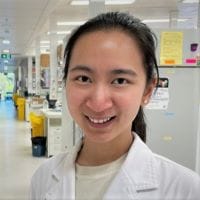
Royal Society of NSW Scholarship Winners 2021
Mr Sajad Abolpour Moshizi is a PhD Candidate at Macquarie University. In his PhD, Mr Moshizi is conducting research on the development of hair-cell sensors for use inside the semicircular canals in the inner ear to treat patients suffering from balance problems and gaze instability. He is a recipient of the Biomolecular Discovery Research Centre (BDRC) Postgraduate Prize and winner of the best internationally peer-reviewed paper by a postgraduate student as a first author accepted for publication (“Development of an ultrasensitive, and flexible piezoresistive flow sensor using vertical graphene nanosheets”) in Nano-Micro Letters. He is a recipient of a Macquarie University Postgraduate Res
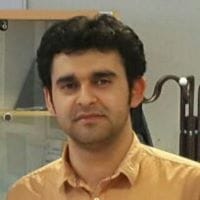
Mr Harry Marquis is a PhD candidate in the School of Physics at the University of Sydney. His research is primarily conducted at the Department of Nuclear Medicine, Royal North Shore Hospital, under the supervision of Professor Dale Bailey. His project is titled “Development of a Dosimetry Platform for Theranostic Agents” and his key research interests are in quantitative PET and SPECT imaging, diagnostic medical imaging and image processing, theranostics and radionuclide therapy dosimetry, radiobiology and radiation safety. Harry’s research has already gained international recognition, receiving the Arthur Weis Award in 2020 for outstanding original work in radiation safety and dosimetry from the Society of Nuclear Medicine and Molecular Imaging (SNMMI). In 2021, his work was featured in the SNMMI plenary lecture highlights “Basic Science Instrumentation & Data analysis: Image Generation” session and was also shortlisted for the best poster award in the physics track.
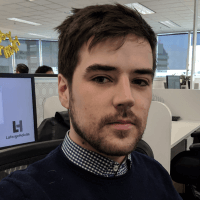
Mr Kevin Chau, an MRes student at Macquarie University, joined the Analytical Glycoimmunology team in April 2018 as an undergraduate volunteer to study the removal of synapses by microglial receptors in the brain during sleep. After completing his course work to near-perfection, he decided to undertake a Master of Research (MRes) degree focusing on platelet glycobiology. During the past 3–4 years he has shown great potential and talent, demonstrated, for example, by the award of multiple prestigious scholarships and prizes during his coursework progress. His research focuses on mapping the glycoproteome of human platelets.
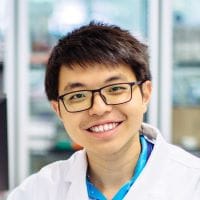
Royal Society of NSW Scholarship Winners 2020
Mr Sajad Razavi Bazaz is a PhD candidate at the University of Technology Sydney. In his PhD, Mr Razavi Bazaz studies the use of 3D printing for microfluidics. Microfluidics is a science which allows the manipulation of fluid samples, typically in the range of microlitres, within networks of channels ranging from tens to hundreds of micrometres. Microfluidic systems are becoming increasingly promising tools for the advancement of chemical and biological research with evident benefits. Today, 3D printing technologies have gained significant traction, being dubbed a third industrial revolution. Due to the expanding use of microfluidic systems in laboratories, 3D printing has emerged as an alternative method to traditional costly fabrication processes. Mr Razavi Bazaz has developed a new method for the fabrication of microfluidic devices and has validated it. He and his colleagues have established a start-up company to develop 3D printed microfluidic devices for selective sperm selection for the IVF market.
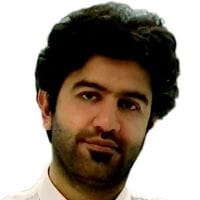
Mr Daniel Fox is a PhD candidate at the Australian National University. Mr Fox is studying the clinically important, but much neglected, human and foodborne pathogen, B Cereus, and has discovered that enterotoxins produced by this bacterium can activate cytosolic innate immune inflammasome sensors which mediate host defence against pathogens. The sensing of pathogens by inflammasome sensor proteins results in the assembly of the inflammasome complex. Mr Fox has identified a toxin NHE as a novel activator of the NLRP3 inflammasome because it triggers formation of a lytic pore that promotes the efflux of potassium ions. He has also found it mediates the killing of cells from multiple lineages and hosts. It acts synergistically with another toxin secreted by the same organism, HBL.

Ms Phillipa Specker is a PhD candidate at UNSW (Sydney). Ms Specker investigating the role of emotional regulation in the management of post-traumatic stress disorder (PTSD) in refugees. Refugees represent one of the largest at-risk groups in the development of PTSD, with current treatments being much less efficacious compared to other trauma-exposed groups. Research suggests that emotion regulating strategies that refugees used to manage stress may be critically important in their recovery from PTSD. In the first part of her PhD program, she found that there were individual differences in the types of emotion regulation strategies that refugees used to manage stress and that those refugees who were better able to concurrently use cognitive reappraisal and emotional suppression had fewer PTSD symptoms. Currently, she is testing a novel experimental paradigm to investigate whether providing refugees with adaptive emotion regulation skills training will reduce PTSD symptomology and ultimately improve well-being.
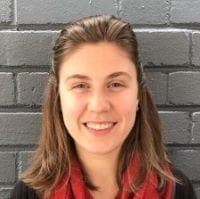
Royal Society of NSW Scholarship Winners 2019
Ms Emma Austin is a PhD candidate at the University of Newcastle. Ms Austin’s research investigates the relationship between drought and wellbeing in rural communities in NSW, taking into account the links between wellbeing and adaptive capacity, and the need for the successful adaptation to drought together with increased resilience which is essential for the survival of rural communities.
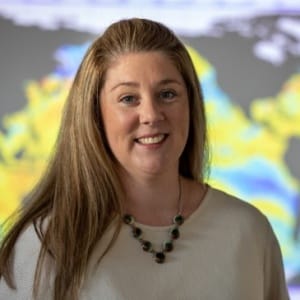
Mr Shayam Balaji is a PhD candidate at the University of Sydney. Mr Balaji’s research is in the field of particle physics which explores the fundamental building blocks of the Universe and the interactions between them. The focus of his work, as a member of the ATLAS Collaboration at CERN’s Large Hadron Collider, is in testing exotic Higgs boson models and extensions to the Standard Model of particle physics.

Mr Michael Papanicolao is a PhD candidate at the University of Technology Sydney and the Garvan Institute of Medical Research. Mr Papanicolao’s research involves investigations into the role of the extracellular matrix (ECM) in breast tumour progression. The focus of his work is on charting how the ECM evolves with tumour progression, using protein mass spectrometry and advanced imaging to identify targetable proteins that are important in breast cancer metastasis.
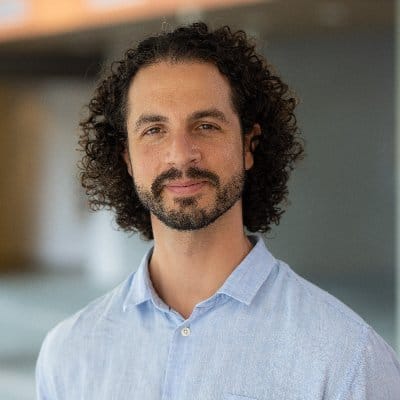
Mr Thomas Pettit is a PhD candidate at the University of Technology Sydney. Mr Pettit’s research is in the field of biofilter technology, in which he has been developing and assessing the use of active green walls to clean the air of active pollutants to provide functional reductions of air pollution in zones where the are most needed.
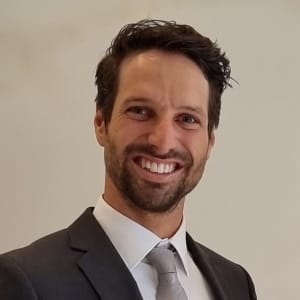
Royal Society of NSW Scholarship Winners 2018
Ms Evelyn Todd is PhD candidate at the University of Sydney. Ms Todd has been working on delving into the genetics of race horse performance, unlocking the historical roots of this breed. It is fascinating work, both from a scientific perspective, but also from the importance of understanding how to manage a closed population breed.

Ms Fiona McDougall is a PhD candidate at Macquarie University. Ms McDougall is investigating non-viral pathogens in flying foxes, specifically bacteria pathogens and the spread of antibiotic resistant bacteria to flying foxes.

List of Past Recipients of Royal Society of NSW Scholarships
| Year | Recipients | |
| 1999 | Alison Basden, Sharon Downes | |
| 2000 | Louise van der Weyden, William Higgs | |
| 2008 | Gerard Kaiko | |
| 2009 | Isa Chan, Tamara Keeley, Danielle Sulikowski | |
| 2010 | Lidia Matesic, Dennis Black, Kerensa McElroy | |
| 2011 | Andre Kyme, Amelia Edington, Benjamin Parker, Martin Fuechsle | |
| 2012 | Jendi Kepple, Anwen Krause-Heuer, Helen Margherita Smith, Andrew Ong* | |
| 2013 | Jiangbo Zhao, John Chan, Jessica Stanley, Xavier Zambrana-Puyalto* | |
| 2014 | Melanie Laird, Stephen Parker, Ruth Wells, Linh Tran* | |
| 2015 | Adrian Dudek, Charles Forster, Yevgeny Stadnik, Charles Colless* | |
| 2016 | Jeremy Chan, Andrew Ritchie, Isobel Ronai | |
| 2017 | Grace Causer, Yu-wei Lin, Cara Van Der Wal | |
| 2018 | Evelyn Todd, Fiona McDougall | |
| 2019 | Emma Austin, Shayam Balaji, Michael Papanicolaou, Thomas Pettit | |
| 2020 | Sajad Razavi Bazaz, Daniel Fox, Phillipa Specker | |
| 2021 | Sajad Abolpour Moshizi, Harry Marquis, Kevin (The Huong) Chau | |
| 2022 | Clara Chung Ming Liu, Thomas Mesaglio, Anyang (Anya) Zhao | |
| 2023 | Sasha Bailey, Jayden McKinnon | |
| 2024 | Muyang Li, Joel Sved, Linqing Tian |
*also recipient of the Jak Kelly Award, presented in conjunction with the Australian Institute of Physics